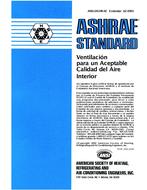Description
Part 1 considered the facility level implications of adopting liquid cooling both in an existing air cooled facility and in a green field facility. This was discussed in the context of an actual installation of a hybrid liquid cooling technology that used spray cooling with a fluorochemical liquid to capture microprocessor heat and transfer it at the rack to facility chilled water (in the case of an existing facility) or tower water in the greenfield case. The utilization of 30°C tower water in the greenfield case increased energy efficiency resulting in reduction or even complete elimination of mechanical cooling.
Part 2 considers the facility level implementation of full liquid cooling schemes that require no air cooling infrastructure. this is discussed in the context of open bath immersion cooling, a form of passive 2-phase or evaporative immersion cooing that has been proposed as a means of increasing facility power density and energy efficiency. The merits of the technology at the node or bath scale have been well documented but the implications at the facility scale have not. This paper is an attempt to predict the effect of these attributes on the construction and operating costs of a datacenter designed from the ground up to utilize the technology.
Product Details
- Published:
- 2013
- Number of Pages:
- 9
- File Size:
- 1 file , 740 KB
- Product Code(s):
- D-DE-13-C047
- Note:
- This product is unavailable in Russia, Belarus




